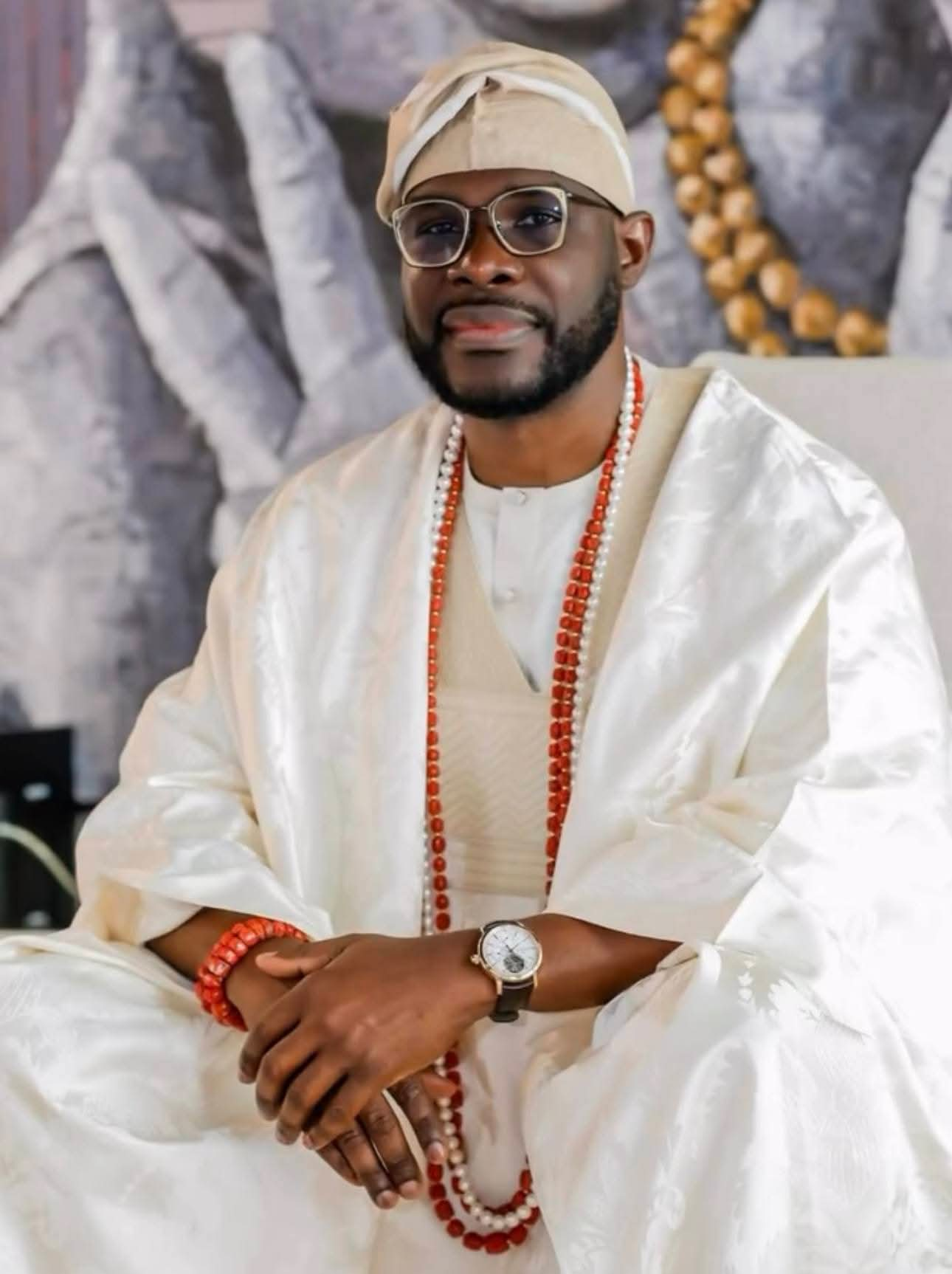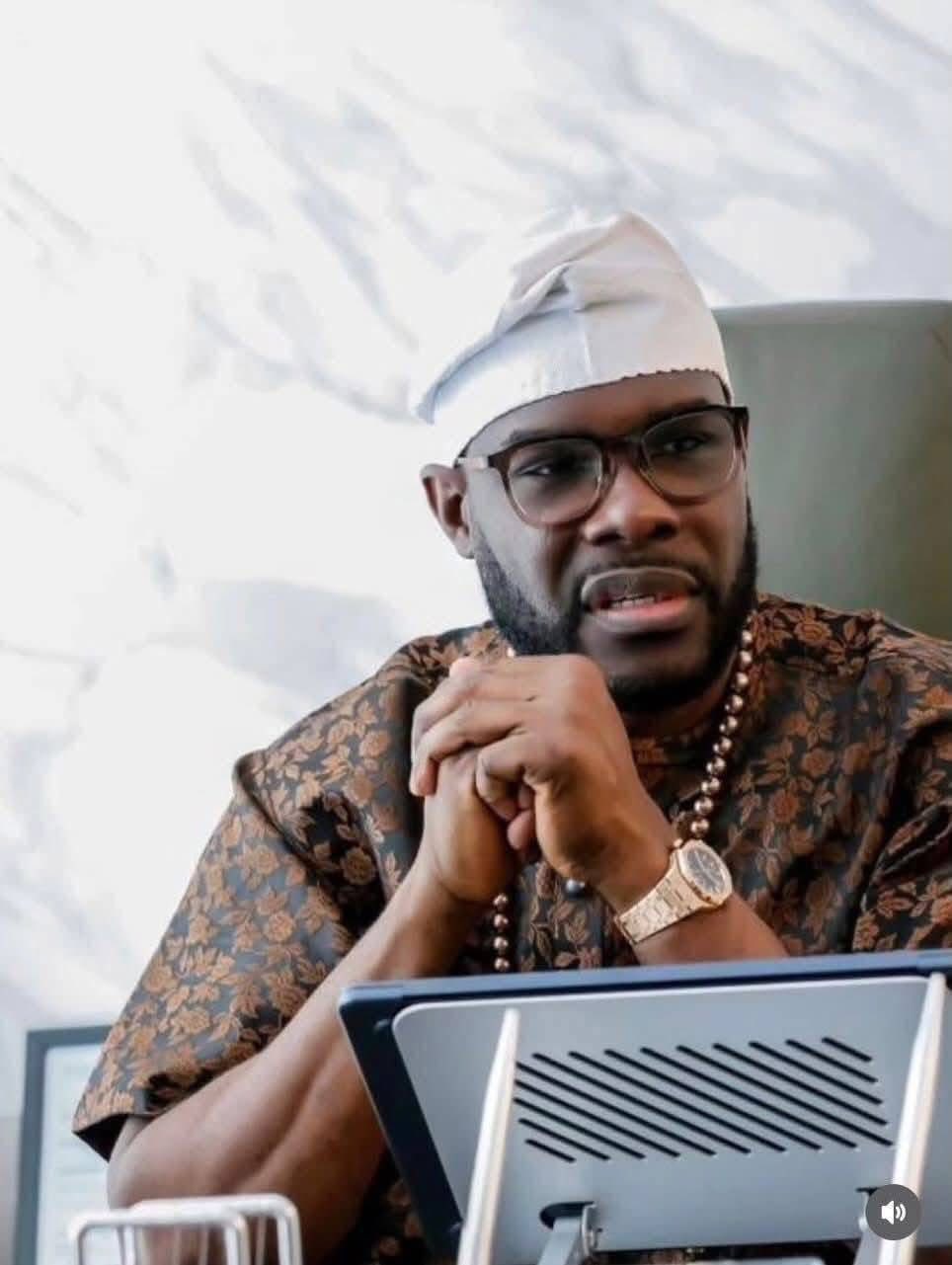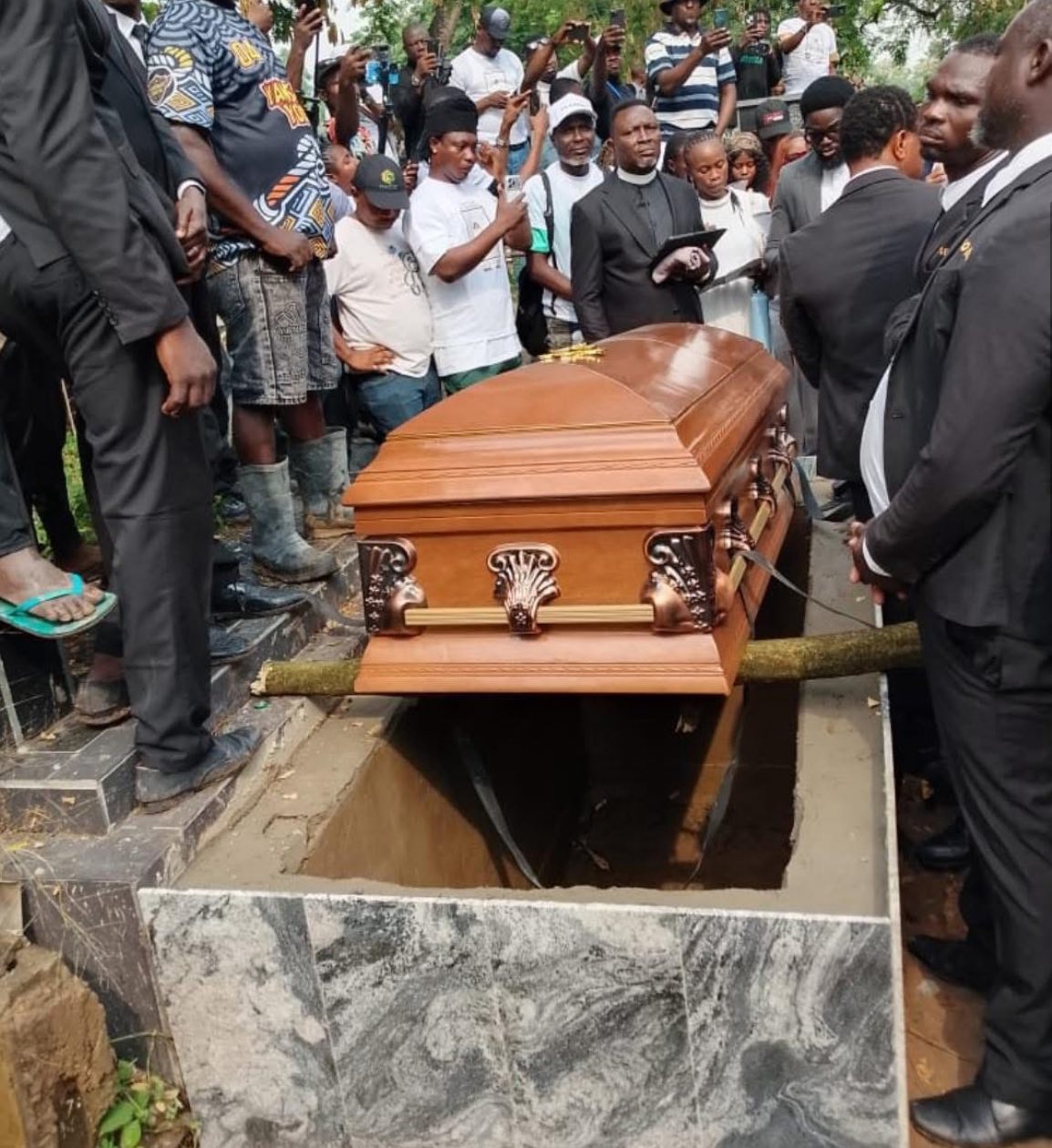Following the expiration of the 48-hour ultimatum issued to the Ooni of Ife, Oba Enitan Ogunwusi, indications emerged on Wednesday that the palace of the Alaafin of Oyo, Oba Akeem Owoade, was preparing to release the Supreme Court ruling, which, according to it, affirms the Alaafin’s exclusive right to confer chieftaincy titles covering the entire Yorubaland.
This development came on the heels of a series of meetings held by the Alaafin with palace chiefs in Oyo town on Wednesday to deliberate on the next steps.
On Monday, the Alaafin’s media aide, Mr Bode Durojaiye, had demanded that the Ooni revoke the Okanlomo of Yorubaland title conferred on businessman, Dotun Sanusi, within 48 hours.
He also cited the Supreme Court ruling in defence of the Alaafin’s position.
The Alaafin accused the Ooni of exceeding his authority and breaching the apex court’s pronouncement on who could confer titles with the “Yorubaland” designation.
He argued that the Ooni’s powers were limited to the former Oranmiyan Local Government Area, now split into Ife Central, Ife North and Ife South.
With the ultimatum expiring on Wednesday, multiple palace sources told The PUNCH that the Alaafin might unveil the Supreme Court judgment to reinforce his position as the paramount ruler of Yorubaland.
On social media, many Nigerians speculated about the “consequences” hinted at by the palace, even as some urged the Alaafin to caution his aide and withdraw the ultimatum.
Amid the uncertainty, the Atóbaáse of Yorubaland, Babajide Agunbiade, said the Alaafin retained historical and political supremacy among the Yoruba. He advised the monarch to consider legal action to reassert his authority.
In an open letter, Agunbiade stressed that while the Ooni remained revered as custodian of Yoruba spiritual heritage, the Alaafin’s role as paramount ruler was indisputable.
He traced the Alaafin’s authority to the Oyo Empire, whose influence once extended across present-day Yorubaland, Dahomey, Offa and parts of Kogi State.
Agunbiade described recent actions by the Ooni of Ife as “an attempt to undermine the authority and tradition of the Alaafin.”
Agunbiade wrote, “As the paramount ruler of the Oyo Empire, which historically spanned vast territories including present-day Yorubaland, Dahomey, Offa, and parts of Kogi State, the Alaafin’s jurisdiction and authority are rooted in tradition and law.
The issuance of Yoruba-wide titles is a prerogative reserved for the Alaafin, as the
Emperor and ruler of the Yoruba people.
“This position has been reinforced through various judicial pronouncements, culminating in affirmation by the Supreme Court of Nigeria. The Alaafin’s role as the paramount authority in Yoruba land is not merely a matter of tradition but is also grounded in legal precedent. This is not just a matter of personal prestige but also of preserving the cultural heritage and traditions of the Yoruba people.”
But a legal practitioner, Pelumi Olajengbesi, countered that no Supreme Court judgment or constitutional instrument granted the Alaafin exclusive pan-Yoruba authority.
He said, “With the greatest respect, the oft-cited Supreme Court decision that purportedly vested Alaafin authority now exaggerated must be properly confined to its facts. Judicial pronouncements are case-specific, and no ratio decidendi of that Court has ever declared the Alaafin the sole custodian of Yoruba legitimacy. No statute in any Yoruba-speaking state vests exclusive authority in the Alaafin to confer titles of pan-Yoruba significance, and the Court cannot by judicial fiat extend such jurisdiction.
“The law is clear, history is unambiguous, and jurisprudence is settled. The Ooni of Ife has not usurped power; he has exercised it intra vires—lawfully, historically, and culturally. He remains the ancestral father of the Yoruba nation, and his competence to confer honours symbolic of unity is beyond reproach.”
Olajengbesi urged that the Alaafin be properly advised, noting that Ile-Ife was universally recognised as the cradle of the Yoruba.
“Every student of Yoruba history knows, tradition and scholarship unanimously affirm Ile-Ife as the cradle of existence of the Yoruba people, the primordial seat where Oduduwa, progenitor of the race, laid the foundation of legitimacy from which all kingdoms, including Oyo, derived their authority.
“As a lawyer, I find no legal, historical, or moral defect in the Ooni’s conferment of the title Okanlomo of Oodua on Chief Dotun Sanusi, an illustrious Yoruba son. On the contrary, it is a timely reminder that while empires rise and fall, the foundation of Yoruba identity, the Ile-Ife and the Ooni, remain timeless, indivisible, and unimpeachable. The Alaafin of Oyo should be properly advised,” Olajengbesi added.
Meanwhile, more groups waded into the dispute between Oba Owoade and Oba Ogunwusi, urging restraint and caution against inflammatory remarks that could derail ongoing peace efforts by socio-cultural, political and religious leaders.
The fresh row had erupted on Monday after the Alaafin faulted the Ooni’s conferment of the Okanlomo of Yorubaland title on Sanusi.
Prominent Yoruba figures, including the Aare Ona Kakanfo, Iba Gani Adams; Ifa scholar, Prof. Wande Abimbola; and the Yoruba Council of Elders, had on Tuesday called for restraint and offered to mediate.
On Wednesday, the Yoruba Council Worldwide described the feud as a matter requiring “calm, reflection and unity.”
Its publicity secretary, Charles Adeyemi, urged Yoruba elders, statesmen and culture custodians to mediate constructively and preserve the dignity of both stools.
The council also appealed to citizens, especially youths, on social media, to avoid inflaming tensions.
The YCW statement read, “We also appeal directly to Yoruba sons and daughters, especially the vibrant voices on social media: let us refrain from speaking ill of our monarchs. Instead, let us be advocates of peace, understanding, and reconciliation. Our words carry weight, and in times of tension, they should be used to build bridges, not walls.
“The Alaafin and the Ooni represent eternal symbols of Yoruba civilisation. Their strength and unity are not only crucial for cultural preservation but also for the collective dignity of the Yoruba nation before the world.
“We therefore call for a truce, apology and immediate retraction of the 48-hour ultimatum issued by Bode Durojaiye, spokesman to the Alaafin of Oyo, while we await the convocation of the Yoruba Obas Conference to allow for a peace pact in Yorubaland.”
Similarly, the President, Traditional Region Worshippers Association in Osun State, Dr Oluseyi Atanda, on Wednesday, called on Nigerians to stop using social media platforms to fuel the disagreement between the two monarchs.
Atanda made this call in Osogbo, during events organised to mark the 19th annual Isese Celebrations in the state.
He disclosed that traditionalists in Osun and Oyo States were already mediating and working towards an amicable resolution of the issues.
Atanda said, “It is a warning to all of us that once we don’t do things in the right way, things are likely to fall apart. It is good that it is happening at an early stage. On our part in Osun, the elders are gathering together and trying to make amends.
“The message has also gotten to the leaders in Oyo, too. We have to wade in for everybody to sheath their swords. It is because of social media that we all think this is a new thing.”
Atanda added that clashes between the two stools were not unprecedented, recalling disputes between the late Ooni, Oba Okunade Sijuwade, and the late Alaafin, Oba Lamidi Adeyemi.
He warned bloggers against “fueling fire with petrol,” insisting the row would pass.
“This is not new. It is just because there is social media now. I think we also need to stop this idea of trying to fuel the fire with petrol in order for us to make sales on our blogs. We are all also contributing to the trend that is on the ground now, but I know it will pass,” he said.
Meanwhile, the Think Yoruba First Ogo Adulawo Socio-Cultural Association condemned attempts to distort Yoruba history.
At a press conference in Lagos, its lead legal adviser, Sanwo Oluwatobi, described such claims as “cultural defamation, historical falsification and intellectual misrepresentation.”
FOLLOW US ON:
FACEBOOK
TWITTER
PINTEREST
TIKTOK
YOUTUBE
LINKEDIN
TUMBLR
INSTAGRAM

 News5 hours ago
News5 hours ago
 Politics5 hours ago
Politics5 hours ago
 News5 hours ago
News5 hours ago
 News5 hours ago
News5 hours ago
 News4 hours ago
News4 hours ago
 Crime5 hours ago
Crime5 hours ago
 Politics4 hours ago
Politics4 hours ago
 News3 hours ago
News3 hours ago









































